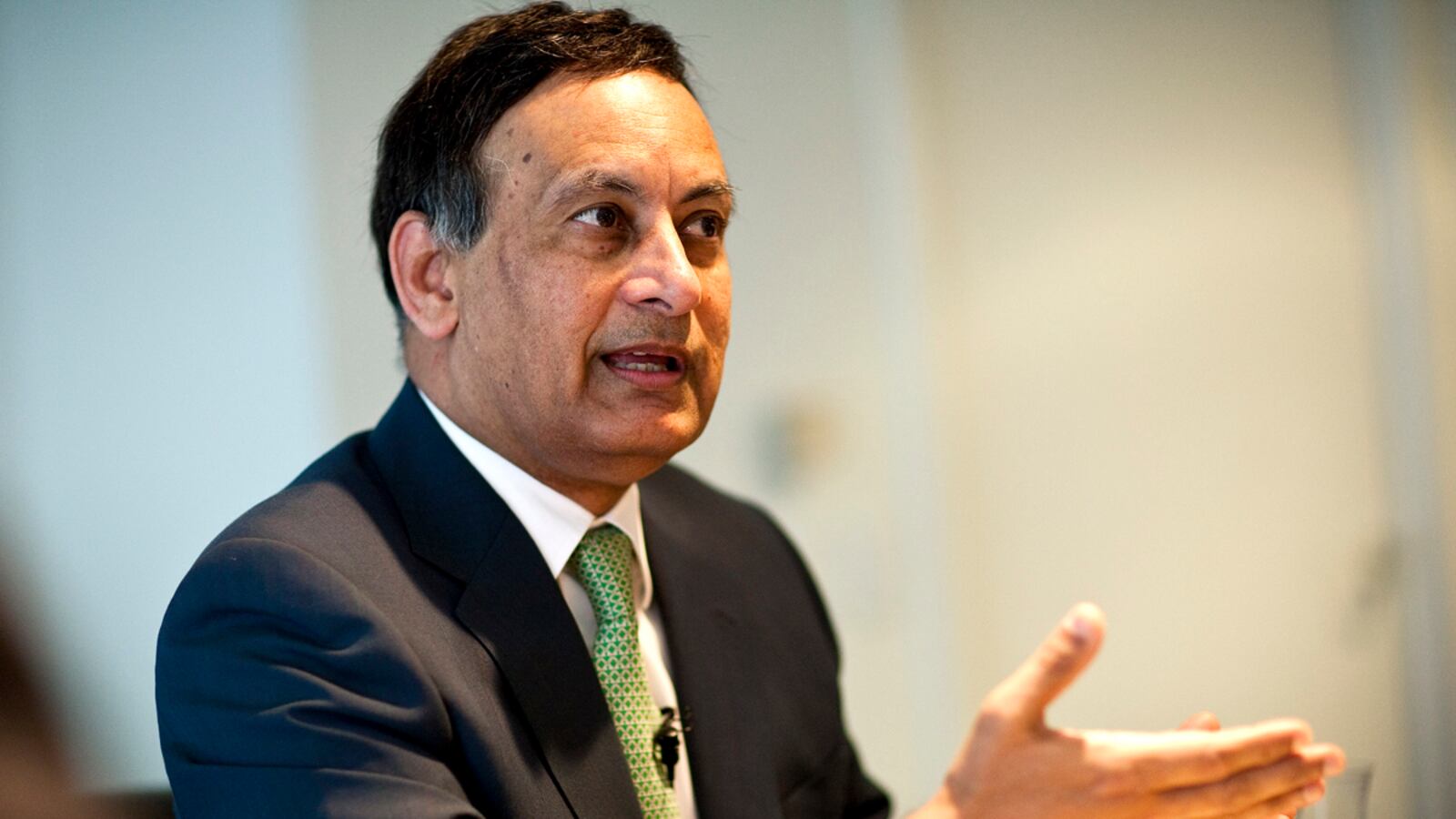For the last three years, Husain Haqqani was a friendly, soothing presence among Washington policymakers distrustful of Pakistan’s intentions and its commitment to fighting al Qaeda. Islamabad’s savvy ambassador to the United States and a journalist by training, he worked the U.S. media, the diplomatic corps, and the dinner circuit relentlessly to assure anyone who listened that his country was a committed ally in the war against terrorism.
Along the way, he won the grudging respect of Democrats, Republicans, and intelligence experts alike.
But his perceived closeness to America fanned growing tensions between the fragile civilian government that Haqqani represented and the Pakistani army, which essentially has run the country for decades. And in the end, a secret letter that allegedly contained a concession from Haqqani’s boss to the U.S. military became his undoing.
On Tuesday, Haqqani resigned in an effort to stem a growing scandal, dubbed “Memogate” in his own country. His sudden departure leaves a void in U.S.-Pakistani relations, already strained over continuing U.S. drone attacks on al Qaeda and Taliban targets on Pakistani soil and the U.S. special forces raid that killed Osama bin Laden in May.
Haqqani’s exit signals “the end of the era of grand sweeping engagement between the United States and Pakistan,” said Sadanand Dhume, a Pakistan expert and resident fellow at the American Enterprise Institute. “The relationship is going to be more limited, more transactional, and more realistic.”

Anthony Cordesman, a national-security expert at the Center for Strategic and International Studies, said the world would not learn the full story of the alleged Haqqani memo for several years, and that it appeared the ambassador’s enemies in Pakistan’s military and intelligence services were behind the political campaign against him.
“He did represent a legitimate voice that strongly favored civil government that would have moved Pakistan to a position that did not give up Pakistani interests but accepted the fact that it was better to have a stable Afghanistan than for Pakistan to have strategic influence in Afghanistan,” Cordesman said. “He’s gone and it’s not clear who can replace him, and it’s unclear if whoever does replace him can stand up to the ISI and the military.”
In October, Pakistani businessman Mansoor Ijaz alleged that Haqqani worked with him to deliver a secret letter from Pakistani President Asif Ali Zardari to Adm. Mike Mullen, then the chairman of the Joint Chiefs of Staff, that purportedly offered the U.S. several concessions as relations between the two countries frayed immediately after the secret bin Laden raid.
Ijaz said the letter offered to put in place a new senior national-security team in Pakistan more favorable to the United States; eliminate the section of the Pakistani intelligence agency in charge of maintaining relations with the Taliban, known as directorate S; launch an independent and transparent inquiry into how bin Laden was able to live in Abbottabad for several years unmolested; and work more closely with the United States to safeguard Pakistan’s nuclear arsenal.
The offer, first disclosed by Ijaz in the Financial Times but later independently confirmed by Josh Rogin of Foreign Policy, has triggered a political crisis in Pakistan. “Civilians cannot withstand much more of the hard pressure being delivered from the Army to succumb to wholesale changes. If civilians are forced from power, Pakistan becomes a sanctuary for UBL’s legacy and potentially the platform for far more rapid spread of al Qaeda’s brand of fanaticism and terror,” the memo purportedly said.
In an email, Haqqani said on Tuesday that he had “resigned to bring closure to this meaningless controversy threatening our fledgling democracy. A transparent inquiry will strengthen the hands of elected leaders whom I have always strived to empower as per our constitution. It will bring to rest wild conspiracy theories.”
Haqqani added: “To me Pakistan and Pakistan’s democracy are far more important than any artificially created crisis over an insignificant memo written by a self-centered businessman. I have served Pakistan and Pakistani democracy to the best of my ability and will continue to do so.”
Haqqani began his career as a reporter covering the Afghanistan war in the 1980s, writing for both the Pakistani press and Western publications such as the Far Eastern Economic Review. Between 1990 and 1992, he was the principal spokesman for Prime Minister Nawaz Sharif and has moved between academics and diplomacy since then.
His 2005 book Pakistan: Between Mosque and Military is considered one of the best histories of the Pakistani military and intelligence establishment’s relationship to Islamic extremist organizations such as the Taliban.
Haqqani was named Pakistan’s ambassador to the United States in 2008.
State Department spokeswoman Victoria Nuland said Tuesday the administration had heard the reports of Haqqani’s resignation but did not receive any official notification.






